Vladimir Putin wants hit man Vadim Krasikov in possible exchange for US Marine Paul Whelan and reporter Evan Gershkovich
Moscow seeks return of covert operative serving life sentence in Germany, possibly in exchange for WSJ reporter Evan Gershkovich and others held by Russia.
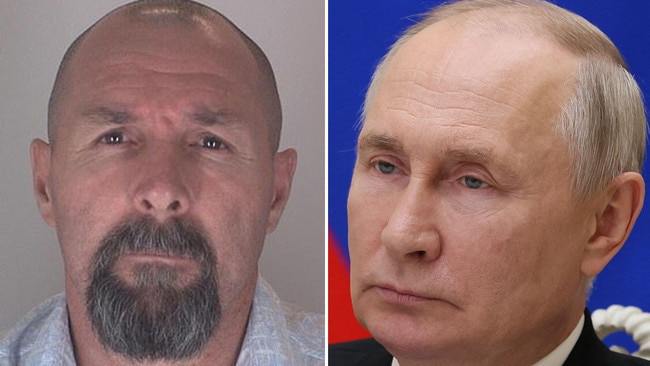
Russian assassin Vadim Krasikov, riding a bicycle, followed his target to a crowded children’s playground at lunchtime, a popular summer spot in a central-city park filled with families and workers.
As the man entered Tiergarten park, Krasikov pedalled close behind. Not far from the swings, he pulled a pistol from a rucksack and shot him in the back, leaving his victim, a former Chechen insurgent leader, slumped on the ground. Krasikov got off his bike and calmly fired twice into the man’s head, watched by children and parents, witnesses said during a court trial that ended in his conviction.
The 2019 murder of Zemlikhan Khangoshvili, a man who Moscow alleged led a 2004 attack in Russia, was determined by a German court to be an intentionally brutal message by Russia to its enemies abroad: Even if you seek refuge in the West, we will hunt you down.
Shortly before the 2021 verdict, Russian President Vladimir Putin ordered his top security adviser, Nikolai Patrushev, to explore a prisoner swap to free Krasikov, said a former European official with connections to senior Russian government figures. That underscored the high value placed on Krasikov by Putin, a former KGB officer who later headed its successor agency, the Federal Security Service, or FSB.
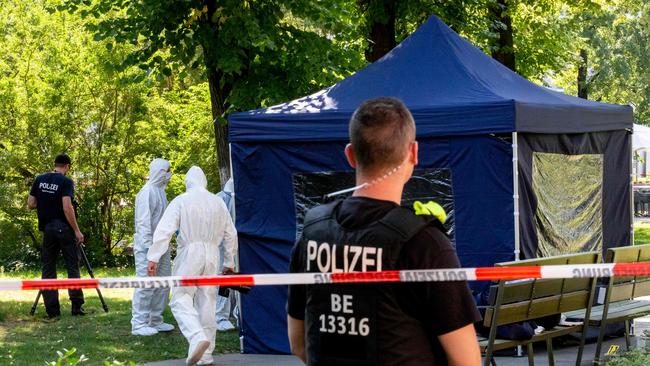
Moscow has since brought up Krasikov’s case in prisoner-swap negotiations, according to Western officials. The officials said Krasikov is central to US efforts to win the release of people held by Russia, possibly including US Marine veteran Paul Whelan and Wall Street Journal reporter Evan Gershkovich. Gershkovich, a 31-year-old US citizen, was detained on March 29 by the FSB while he was on a reporting assignment. He is being held on a charge of espionage, which Gershkovich, the Journal and US officials deny. A top Western official involved in hostage diplomacy with Russia said Putin was interested in trading only for Krasikov. Putin has sought the return of agents arrested during other clandestine operations abroad. In 2004, he thanked the Emir of Qatar for returning two men convicted there of planting a car bomb that killed a fugitive Chechen rebel leader. Russia denied responsibility for the killing. Officials in several countries said a multilateral deal to swap Russian detainees in Western countries for Western citizens held in Russia, as well as imprisoned dissidents such as Alexei Navalny, was possible.
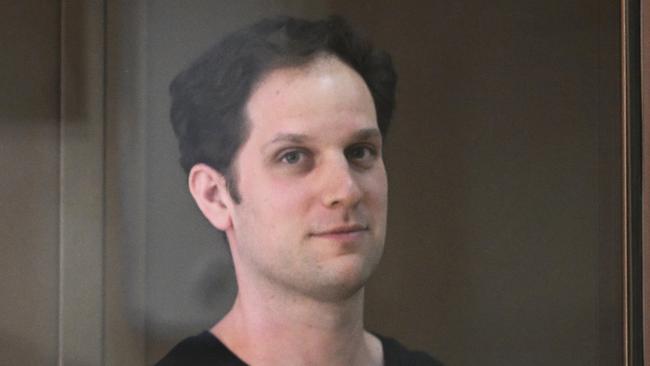
President Biden said in July that he was serious about pursuing a prisoner exchange for Gershkovich with the Kremlin but gave no details. Deputy Foreign Minister Sergei Ryabkov said in April that Russia would contemplate a swap only after a verdict in the Gershkovich case. Berlin hasn’t said whether it would consider exchanging Krasikov. Such a swap could face obstacles in Germany, where government lawyers issued a legal opinion last year that said a convicted murderer can’t be traded. Any talks involving Krasikov would be sensitive and unpredictable, said Western officials, given the seriousness of his crime. The German court ruled that the Russian state had commissioned the murder, which was carried out at midday in a park near the office of the German chancellor. With Khangoshvili lying dead near the children’s playground, the assassin hopped on his bike and pedalled away. He stopped at the nearby Spree river, changed out of his clothes and peeled off a wig, revealing a bald head. He hurled his disguise, bicycle, pistol and silencer into the water. Then, he shaved off part of his beard with an electric razor. Two passers-by watched him and called the police. Minutes later, Krasikov was arrested as he tried to mount an electric scooter. Police retrieved the tossed items, which carried his fingerprints and DNA evidence. German prosecutors had their man, but for two years they couldn’t prove who he was. Krasikov, now 58 years old, told authorities his name was Vadim Sokolov, a tourist with no connection to the Russian government. He had a Russian passport identifying him as Sokolov. He told interrogators that he was in Berlin to visit his lover, a married woman. The Russian embassy in Berlin said he was Vadim Sokolov, not Vadim Krasikov. When his murder trial opened in October 2020, Krasikov stuck to his story. With the help of police in Kyiv and the investigative platform Bellingcat, German prosecutors eventually confirmed his identity as a veteran of Russian covert operations. Prosecutors said Krasikov was likely working with the secretive Vympel department of the FSB, renamed V, which specialises in clandestine operations abroad.
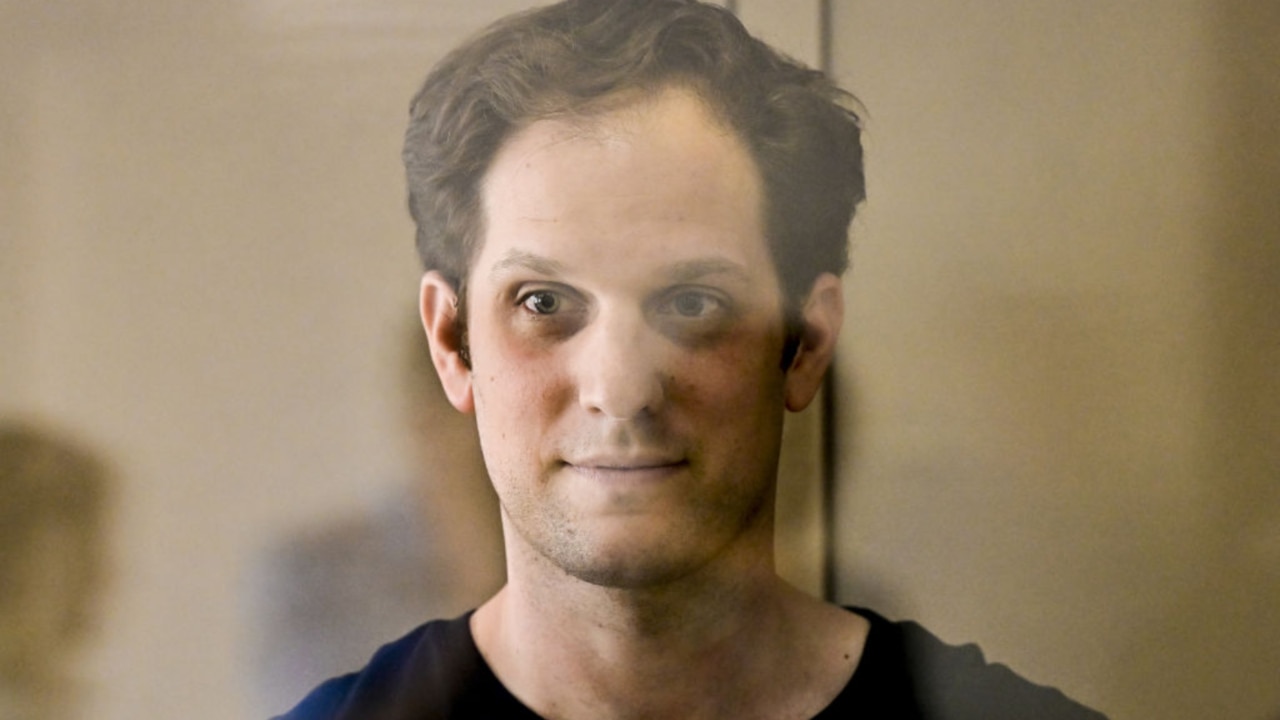
Krasikov denied both killing Khangoshvili and working for Russian security services. Asked by a judge if he had anything to tell the court before his conviction, he said, “No, thank you.” A German court found him guilty of murder in December 2021, describing the fatal shooting as an act of state terrorism. He was sentenced to life in prison. Russia’s Foreign Ministry said the guilty verdict was politically motivated and the allegation that Moscow was behind the killing was concocted by Western intelligence services. “We insist that our citizen is innocent,” the foreign ministry said in a statement after the verdict. The ministry also said at the time that the convicted man was Sokolov, not Krasikov. Russia’s embassy to Berlin declined to comment for this article and referred to the statement by the foreign ministry, which didn’t respond to a request to comment. This account of the case is based on court files and interviews with acquaintances and relatives of Krasikov, as well as European and US officials and people familiar with the murder investigation. Krasikov was born in the village of Kenestobe, in a region of Kazakhstan known for cattle farming and lead mining. He served in the Soviet army during its war in Afghanistan. He later joined elite military units in Russia’s Interior Ministry and the FSB, the country’s main domestic intelligence agency, according to his brother-in-law, who testified for the prosecution at the trial. Krasikov was married twice, the second time to Kateryna Krasikova, a woman from Kharkiv, a city in northeastern Ukraine. He told his wife’s family that he worked for Russian security services but gave few specifics, the brother-in-law, Aleksandr Vodorez, said in an interview. Photographs from Krasikov’s July 2010 wedding in Moscow that were in court files show FSB officers among the guests on the bank of the Moskva River. He and his second wife lived in an upscale Moscow apartment, and his wife told her family that he earned about $10,000 a month, plus bonuses for what he called business trips, which sometimes lasted weeks, Vodorez said. Krasikov often wore designer clothes and took vacations on the Mediterranean, Vodorez said. Krasikov’s wife complained to relatives that he traded his luxury cars so frequently — Porsches and BMWs — that she never had enough time to get used to them, Vodorez said. Krasikov, who compulsively washed his hands, once bragged about meeting Putin at an elite military training facility, Vodorez said. Putin, Krasikov told him, “shoots well,” he recalled.
German prosecutors obtained surveillance-camera footage from 2013 that showed a man they identified as Krasikov killing a Russian businessman, an attack that mirrored Khangoshvili’s slaying. The video shows Albert Nazranov, the owner of businesses in the Caucasian Republic of Kabardino-Balkaria, walking and then running in Moscow from a man approaching him on a bicycle. Nazranov collapses after being shot in the back and head. Shortly after the killing, Russian police issued an Interpol arrest warrant for Vadim Krasikov, which was later retracted. German prosecutors suspected that local police sought help arresting Krasikov but reversed course after learning of his connections to Russian security services. Krasikov’s in-laws in Kharkiv held a significant clue for German prosecutors in the Khangoshvili case — a photo of a tattooed Krasikov taken during a beach holiday. Forensics experts used the tattoos in the photo, a panther skull encircled by wings, the emblem of the Russian Interior Ministry’s special forces, on his left shoulder and a coiled snake on his forearm, to match the tattoos on Krasikov. Krasikov’s wife and child moved to Russian-held Crimea after his 2019 arrest and now live under the watch of the FSB, according to people close to the family. Helping hands Before travelling to Berlin, Krasikov applied for a tourist visa from the French consulate in St. Petersburg. He used a Russian passport issued a month earlier in the name of Vadim Sokolov. On Aug. 17, he flew from Moscow to Paris. Krasikov booked a sightseeing tour and took selfies by the Eiffel Tower and other landmarks. He flew to Warsaw on Aug. 20, and checked into the Warsaw Novotel hotel. Krasikov took a tour with a Russian-speaking guide and snapped more travel selfies, including one at the Wilanów palace and museum, a baroque castle on the outskirts of Warsaw.
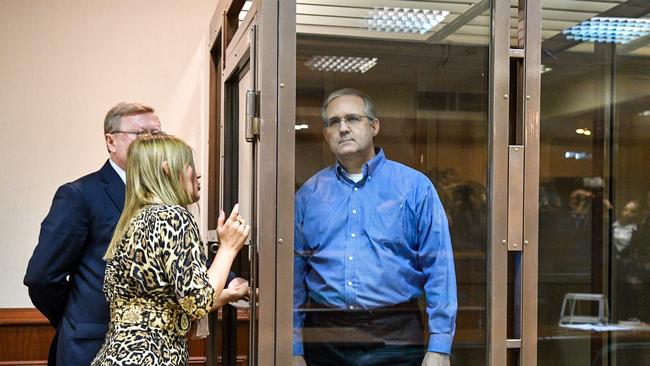
Hotel staff described him to German investigators as a polite, elegantly dressed man with a groomed beard. Krasikov asked a receptionist to book him a manicure at a nearby beauty salon. He later told the receptionist he was happy with the manicure and gave her a generous tip. On Aug. 22, he left for Berlin, leaving his luggage and mobile phone in his Warsaw hotel room, which he had booked through Aug. 25, the day he planned to fly back to Moscow, according to court files. In Berlin, he met with people who provided him with new clothes, a black mountain bike and details about Khangoshvili’s daily routine, German investigators said. He also received a Glock 26 9mm pistol, along with a silencer and a reserve magazine. His helpers parked an electric scooter on the bank of the Spree river for his escape. WALL STREET JOURNAL

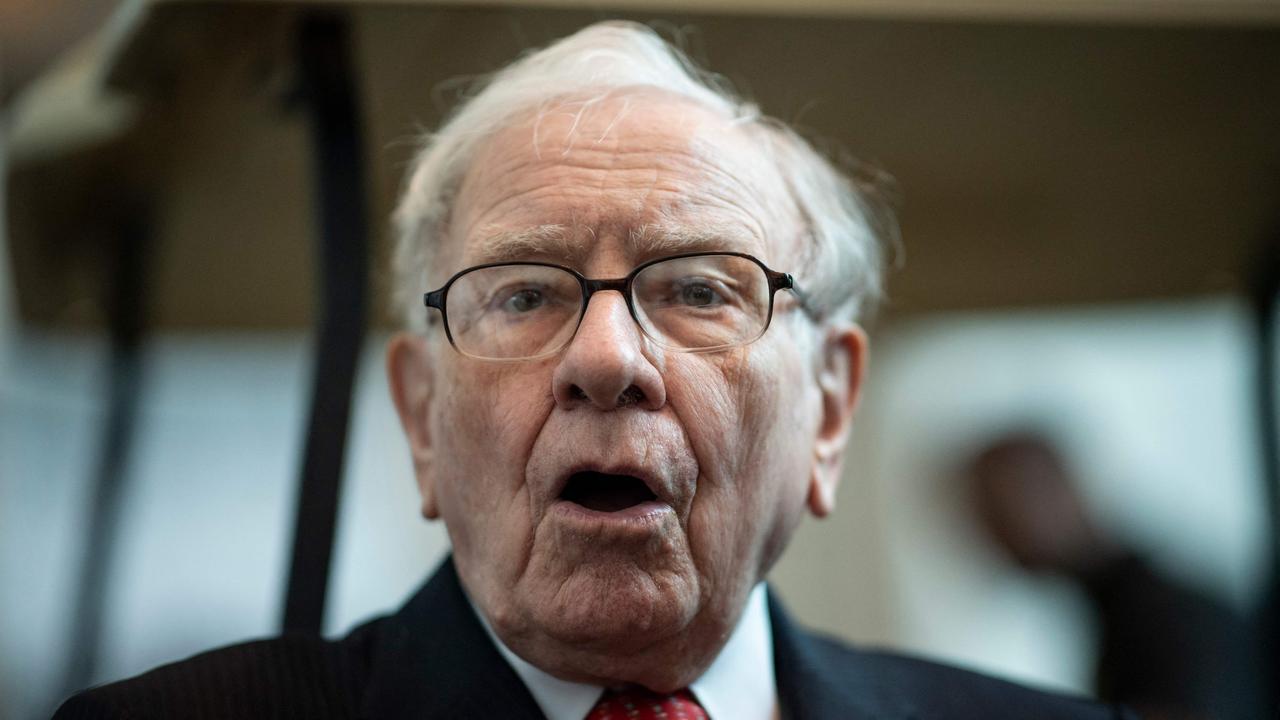
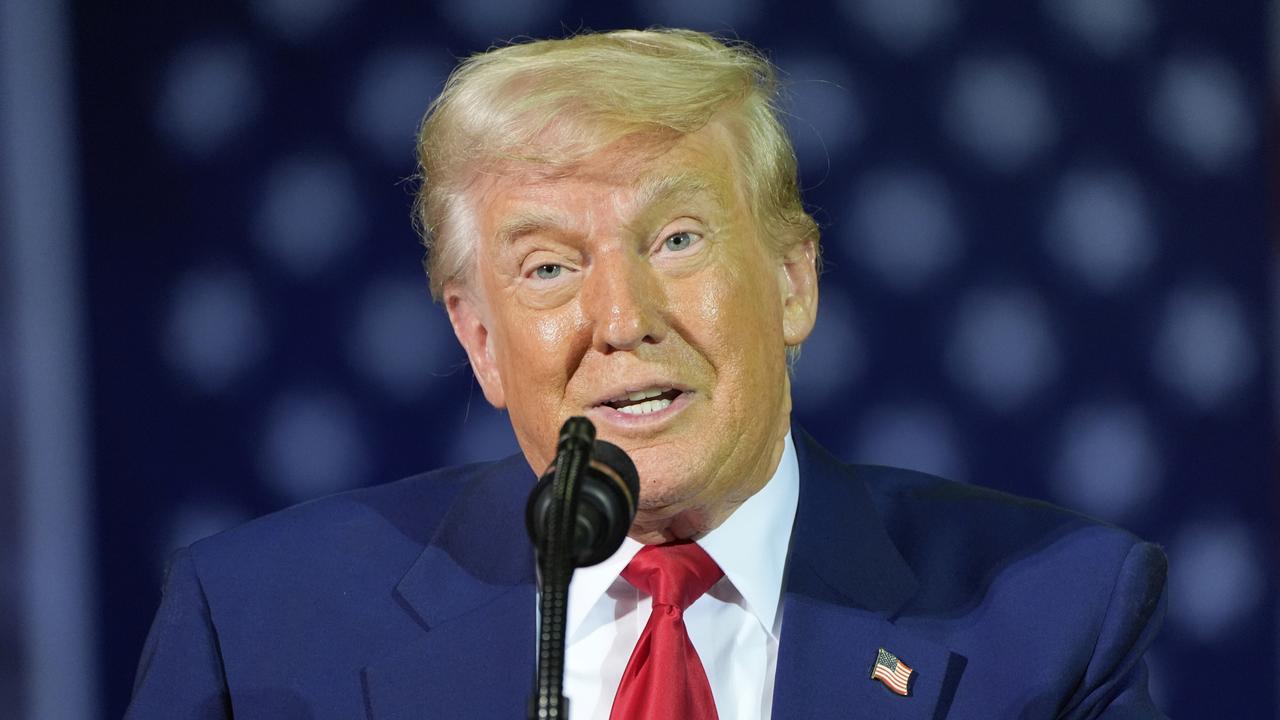
To join the conversation, please log in. Don't have an account? Register
Join the conversation, you are commenting as Logout